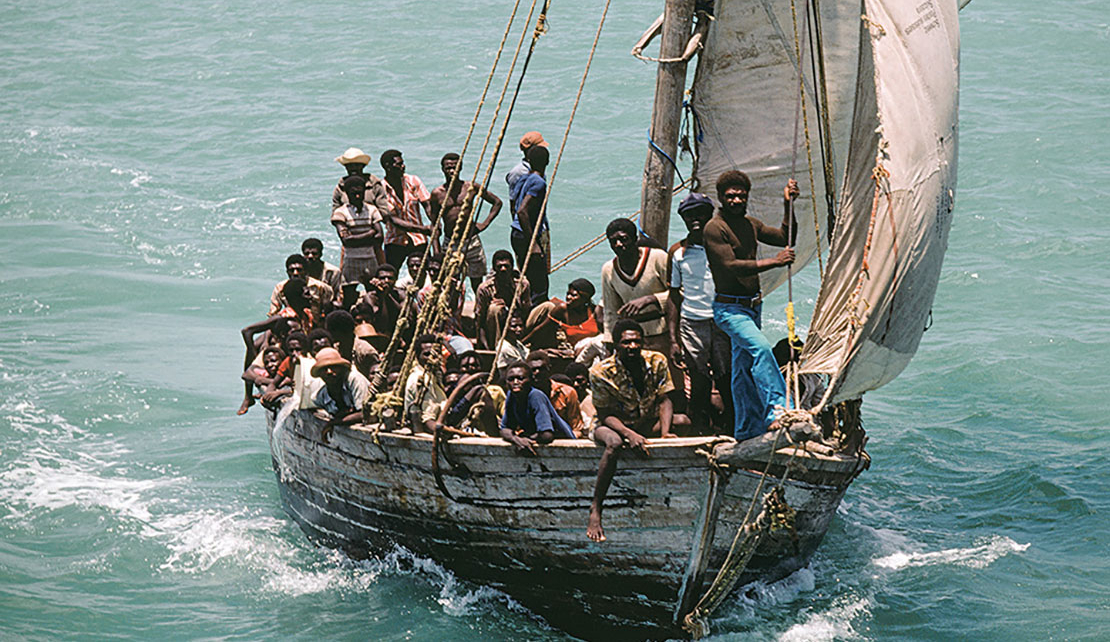JAMAICA rejects asylum for 37 Haitians, Freedom Imaginaries to appeal

MONTEGO BAY, Jamaica February 29, 2024 - Amid a devastating humanitarian and security crisis in Haiti, the United Nations UN Refugee Agency, UNHCR, has been appealing to States in the region to suspend the forced return of Haitians to their country.
According to the UNHCR, Violence, including sexual violence, kidnapping, looting and roadblocks by armed gangs, has exacerbated an already dramatic humanitarian situation in Haiti, which is marked by acute food insecurity, fuel shortages, and limited health care and sanitation. Millions of children are unable to attend school, are malnourished and live in fear.
The UN Human Rights Office says the systematic violations of rights and the unremitting armed violence have precipitated the country’s descent into its “worst human rights and humanitarian situation in decades”.
It is against this background that human rights group Freedom Imaginaries says it will be appealing the Jamaica government's decision not to grant asylum status to the 37 Haitian refugees who arrived by boat in July last year.
The Haitians were handed the rejection letters around 9 o'clock Tuesday night.
Attorney Malene Alleyne, founder of Freedom Imaginaries, said there is a right of appeal to the Minister of National Security within seven working days.
"We will go forward with the appeals because this is a matter of extreme importance. The UN has made it clear that the situation in Haiti is not conducive to forced returns and has called upon states to suspend the forced return of Haitians to Haiti.
“And so this process, before exhausting all remedies, is extremely important, not just for the issue of Haitian refugees, but for the rule of law in general," she reasoned.
Ms. Alleyne is concerned that the government decided to reject the asylum applications of the Haitians despite the deepening crisis in Haiti.
She also questioned whether due process was followed considering she was not allowed to present submissions on behalf of the migrants. “Neither were the applicants heard by the committee convened to consider their asylum applications,” she said.
"We have serious concerns about the integrity of this decision because we believe the process has been undermined by serious due process issues, including basic due process guarantees like the right to be heard, the right to be represented by an attorney, and so on," Alleyne declared.
Freedom Imaginaries said the Government of Jamaica, in its treatment of the 37 Haitian migrants who arrived on the shores of Boston Bay in Portland on the 10th of July, had violated almost all international conventions and protocols regarding the treatment of refugees.
The 29 adults were hauled before the court by the government, without the provision of any legal representation or translation services for the French speaking refugees, where they pleaded guilty to illegally entering Jamaica after spending some fourteen days adrift on the high seas hoping to land in Florida.
They were each fined J$7000 or three days at hard labour for illegal entry, despite Jamaica being a signatory to the 1967 Protocol of the UN Refugee convention which prohibits the punishment of refugees for entering receiving states ‘illegally’ – that is, without a passport or visa.
Following this, Jamaica's Passport, Immigration and Citizenship Agency in contravention of the Convention's principle of non-refoulement, started making arrangements to have them returned to Haiti.
The Refugee Convention imposes several obligations on countries relating to the treatment and protection of asylum seekers and refugees.
The principle of non-refoulement is one of the most important principles in the Refugee Convention. It requires (a) that countries do not send refugees to a place where they will face a well-founded fear of persecution, nor to any other country that might send them to such a place.
(b) Providing refugees with a legal status, including rights such as access to employment, education and social security;
(c) Not punishing refugees for entering ‘illegally’ – that is, without a passport or visa.
The effect of the Protocol means that the Refugee Convention now applies universally in those States which have adopted the Protocol.
The exceptions are: Turkey, which expressly maintains the geographical restriction; Madagascar, which maintains the geographical restriction and has not adopted the Protocol; and St. Kitts and Nevis, which has not adopted the Protocol.
-30-
